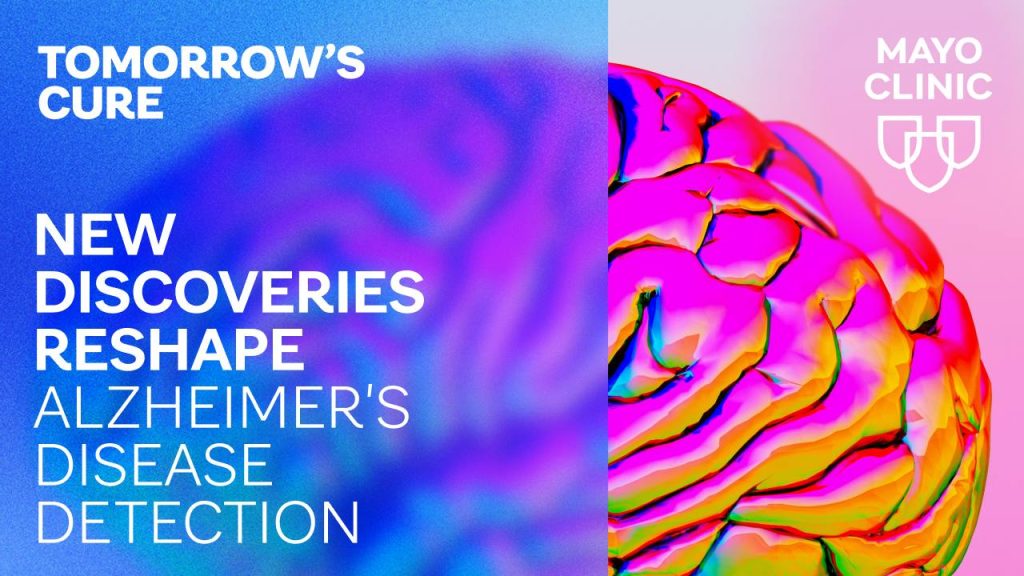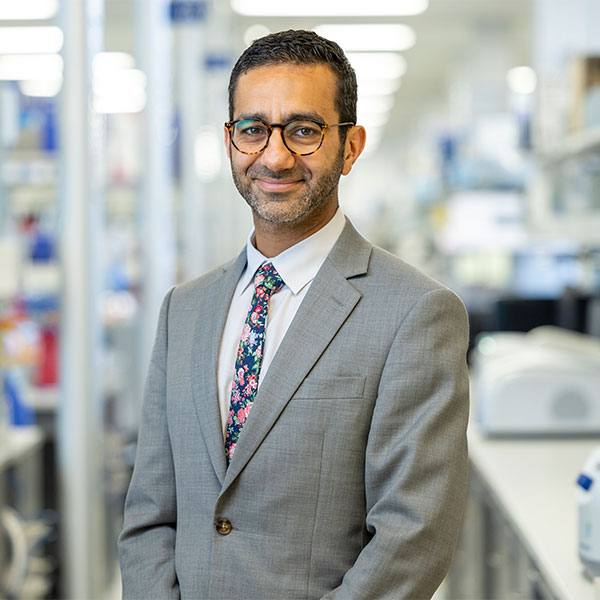-
Neurosciences
Tomorrow’s Cure: New discoveries reshape Alzheimer’s disease detection

Tomorrow's Cure is back for season three. In recognition of Alzheimer's and Brain Awareness Month, the episode highlights one of the most devastating and complex diagnoses, impacting patients, families, and caregivers alike. With cases on the rise globally, the urgency to better understand, detect and treat this complex brain disorder has never been greater.
The podcast episode features insights from Dr. Vijay Shah, Kinney Executive Dean of Research at Mayo Clinic; Heidi Dieter, chief research officer at Mayo Clinic; and Amy Goldman, CEO and chair of GHR Foundation. Together, they discuss the latest breakthroughs in Alzheimer's disease research and their potential for prevention, early diagnosis and future treatment strategies.
A major focus of today's research is identifying Alzheimer's earlier, even before symptoms appear. Early diagnosis allows for preventive interventions that may slow or even stop disease progression. Dieter shares the long-term vision of Alzheimer's research, "The long-term goals are to develop tools that help predict and prevent cognitive decline in dementia — also, developing risk prediction models for cognitive impairment."
Researchers are exploring innovative diagnostic tools, including blood tests, genetic screening and even voice analysis. These emerging methods are generating excitement among researchers for their potential to detect Alzheimer's earlier and more efficiently.
"The understanding of Alzheimer's has evolved over the last two decades from being something that wasn't able to be diagnosed until someone had passed away and had an autopsy, to now a diagnostic potential," Goldman says.
One of the most promising and scalable developments is voice-based detection. Researchers have found that subtle changes in a person's voice may appear well before traditional cognitive symptoms emerge.
"Depending on the day and how you're feeling, your voice sounds different," says Dr. Shah. "If you are starting to have mild cognitive impairment, your voice is going to start sounding different.
"As an individual, it may not be useful, but when we take voice recordings from millions and millions of people and put them into an AI model, it allows us to identify changes in voice that are predictive of mild cognitive impairment. That's the type of biomarker we can scale."
Don't miss this conversation on the evolving science of Alzheimer's disease and the innovative efforts that may one day change its trajectory. Listen to the latest episode of Tomorrow's Cure, and explore the full library of episodes and guests at tomorrowscure.com.
Related stories:
- Mayo Clinic researchers develop first salivary gland regenerative biobank to combat chronic dry mouth - Mayo Clinic News Network
- Mayo Clinic researchers to study causes of rapidly progressive dementia - Mayo Clinic News Network
- Mayo Clinic contributes to national Alzheimer's disease research priorities in new report - Mayo Clinic News Network







